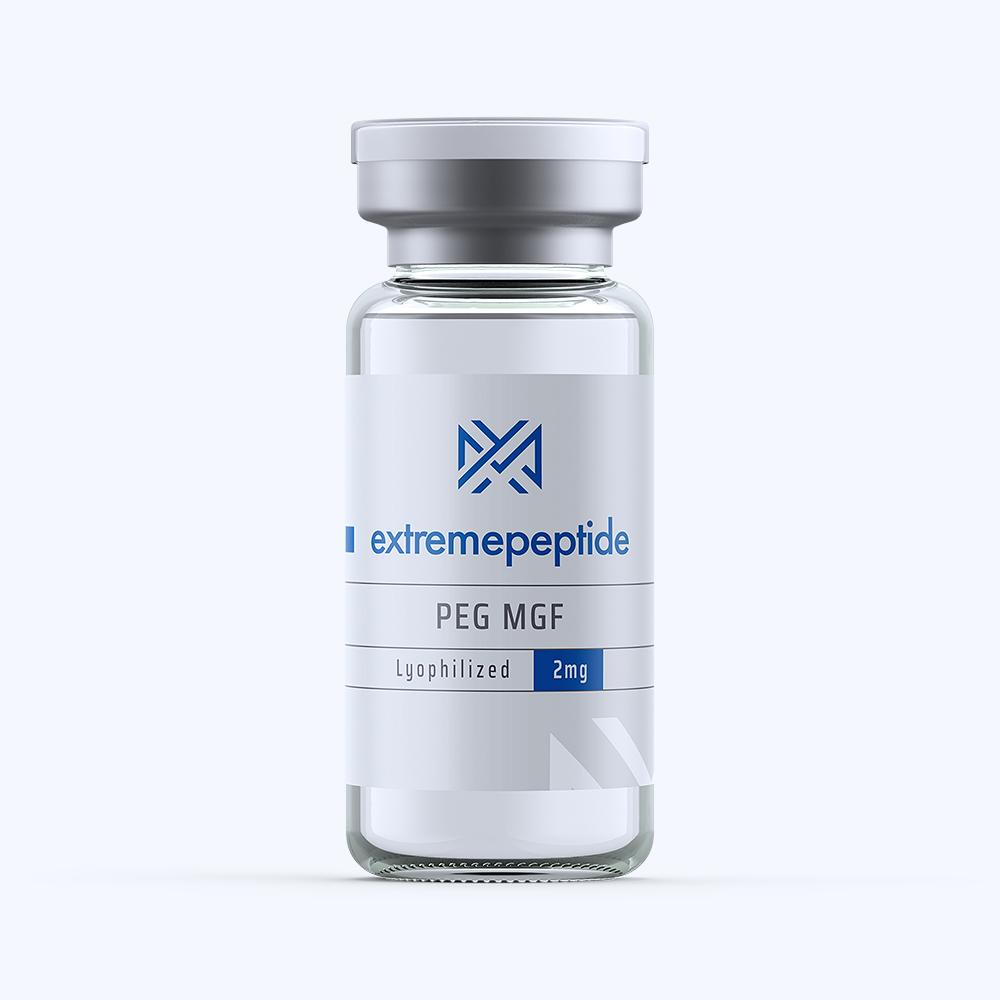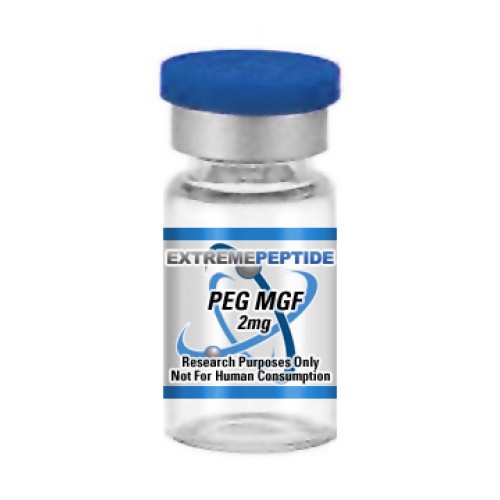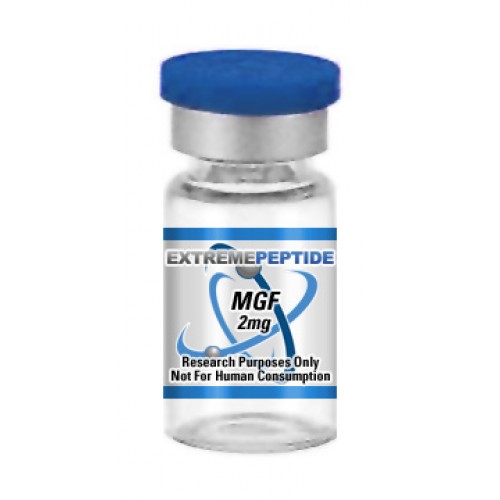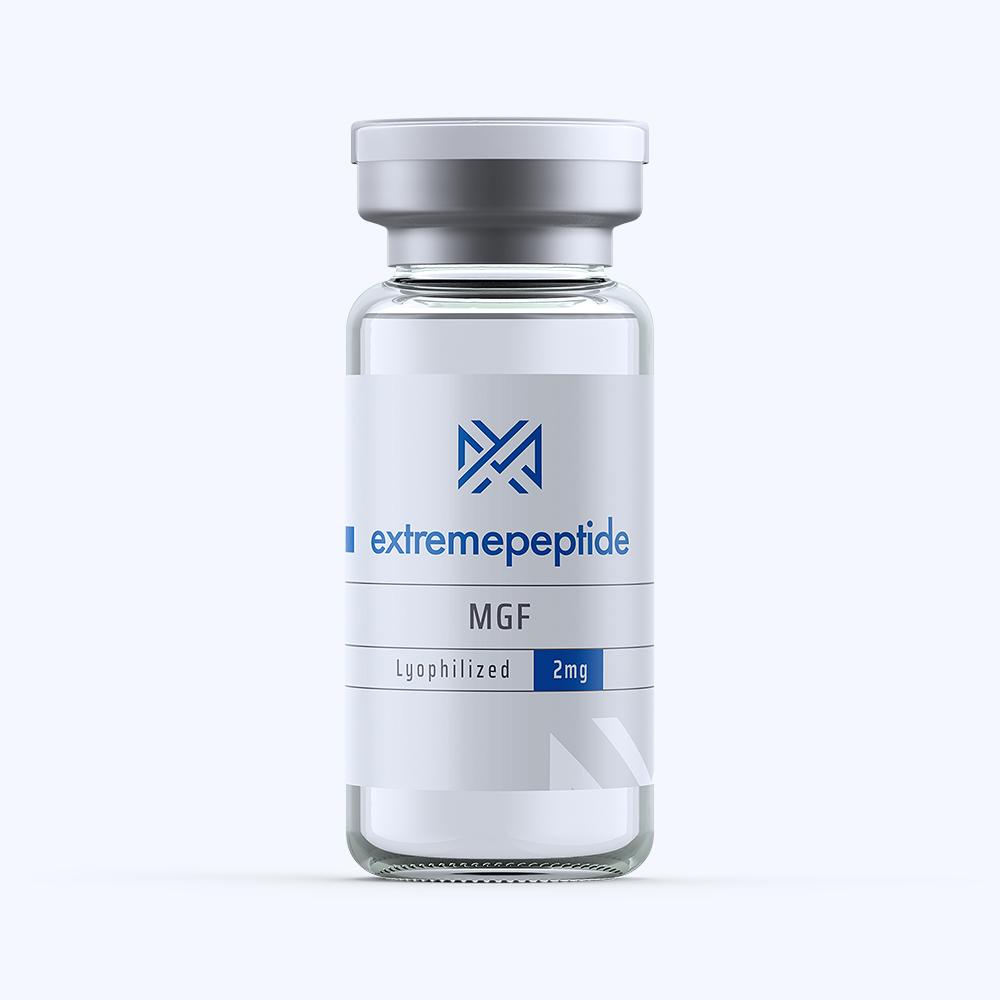The systematic, water-soluble peptide Peg MGF – short for PEGylated Mechano Growth Factor – is a combination of Polyethylene glycol and the repair factor MGF. It has a molecular formula of C121H200N42O39, and it carries a molecular mass of 2867.2.
The Basics of Peg MGF

According to scientific research that has been conducted on animal test subjects, Peg MGF works with the secretion known as mechano growth factor (hence the MFG in the peptide’s name). This secretion occurs as a means to counterbalance the effects of cellular terminal differentiation as it stimulates instances of muscular and skeletal growth and repair. In other words, it not only plays a role in regulating muscular and skeletal tissue in animal test subjects, it also slows the last stage of cellular differentiation in which a cell is no longer functional. The downside to mechano growth factor’s overall functionality is that exhibits a very rapid half-life lasting only a few minutes in length.
However, Peg MGF is able to extend the half-life of mechano growth factor by exhibiting a process that is known as PEGylation. In essence, this process allows for a covalent attachment to form between the peptide and the secretion. In turn, this attachment serves to act as a protective barrier for the mechano growth factor molecule. This process enables the secretion to pass through the bloodstream without experiencing the level of degradation that it otherwise would. This manner of protection – and the extending of the half-life that comes with it – thus enables a greater level of stability which also allows the secretion’s overall functionality to increase. In this case, scientific study based on animal test subjects has determined that this elevated functionality translates into a boosted level of muscle and tissue growth and repair, which in turn leads to a more efficient means of achieving homeostasis.
Peg MGF, Muscle Growth, and Muscle Repair
Scientific study that has been built around animal test subjects has determined that Peg MGF’s functional processes has enabled it to possibly be key in elevating several rudimentary processes that are linked to muscle and tissue growth and repair. Some of these processes include:
- Improved regeneration of skeletal muscle – Because Peg MGF has been shown to extend the half-life of mechano growth factor by ways of initiating PEGylation, scientific study based on animal test subjects has determined that the presence of the peptide can increase the animal test subject’s ability to build and repair muscular and skeletal tissue in a significantly more efficient manner.
- Improvement of bone density – Scientific study that has been based on animal test subjects has determined that the Peg MGF’s ability to promote skeletal tissue growth and repair ties to an ability to induce an enhanced amount of bone mineral to be produced. Because of this, it is thought that the peptide’s presence can enable an animal test subject to experience a boost in overall bone density. This elevated process can lead to bones that are sturdier, more durable, and less vulnerable to breaks and fractures.
- A faster, more efficient means of injury recovery – Scientific study that has been built on animal test subjects has determined that the overall functionality of Peg MGF causes a boost in the amount of time in which the materials that are needed in order to repair muscle fiber and skeletal tissue can be expressed. Because of this boost in functionality, it has been determined that this elevated interval can enable an animal test subject’s body to heal more efficiently.
Peg MGF’s Relationship with Ischemic Injury
Additional study that has been conducted on animal test subjects has determined that Peg MGF’s ability to enable a more stabilized method of travel throughout the bloodstream could make it a key component in aiding in the stabilization of cellular response in the event of an ischemic episode. This is a condition that is brought on due to a restriction of blood supply to tissues, which in turn causes a shortage of the oxygen and glucose needed in order for proper cellular metabolism to occur. Some of these ischemic episodes include stroke, angina pectoris, cardiac arrest due to a heart attack, and an insufficient level of oxygen delivered to an effected area in the wake of a traumatic injury.




